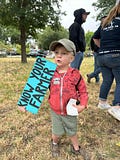Sonoma County Set to Vote on Nation’s First Farm Ban
Farmers say Measure J would destroy local agriculture.
Sonoma County in Northern California will be the first county in the nation to vote on a factory farm ban.
Farm groups in Sonoma County say Measure J is misleading; it won’t shut down “factory farms,” it will shut down legacy family farms. The animal rights group behind the legislation want to end animal agriculture and meat consumption altogether.
“It’s really dangerous for our county,” Dayna Ghirardelli, executive director of the Sonoma County Farm Bureau, told UNWON. “We have multi-generational family farms that are under direct threat and will go out of business. If there is a farm that is not directly affected, we all know they will be indirectly effective and a lot of farms will go out of business because we all need each other to survive.”
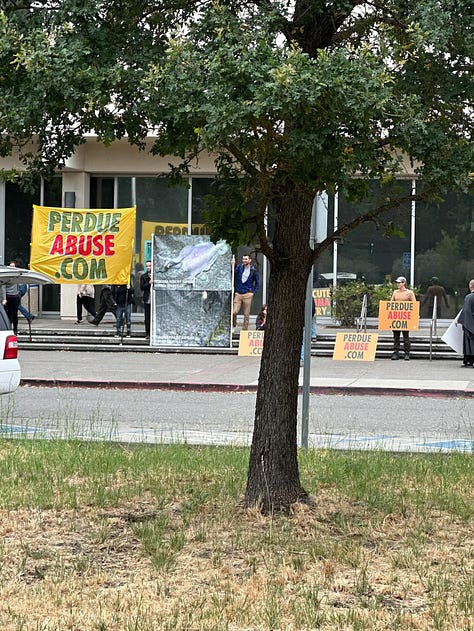
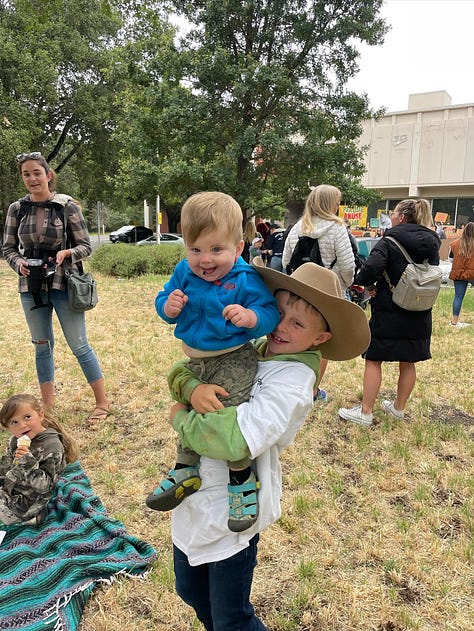
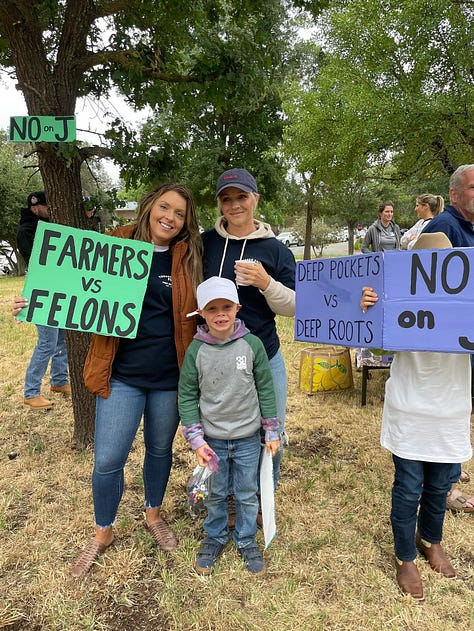
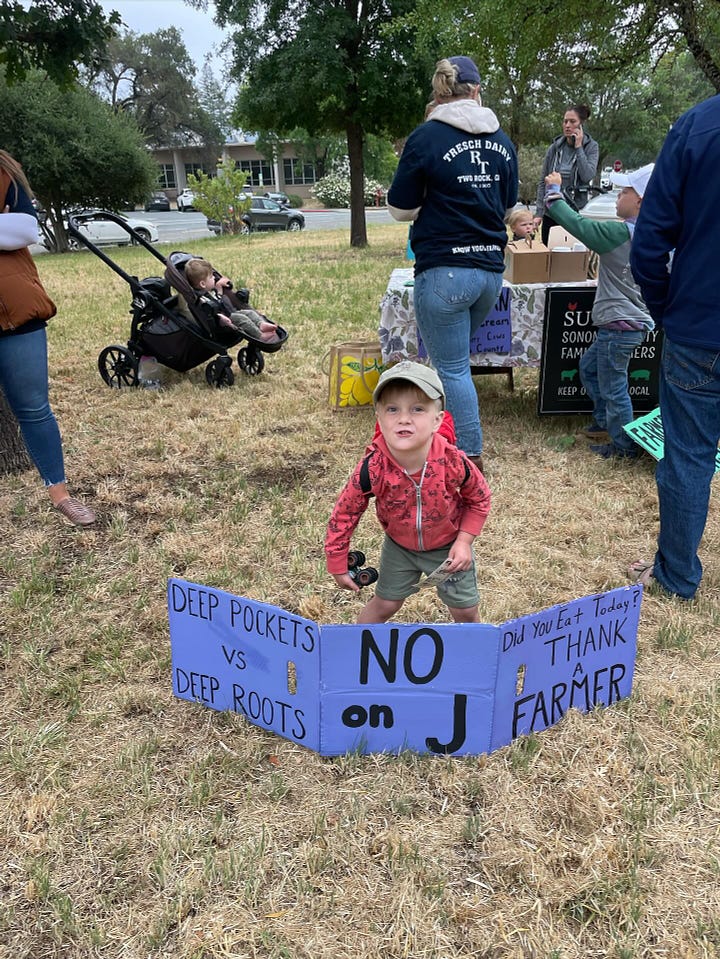
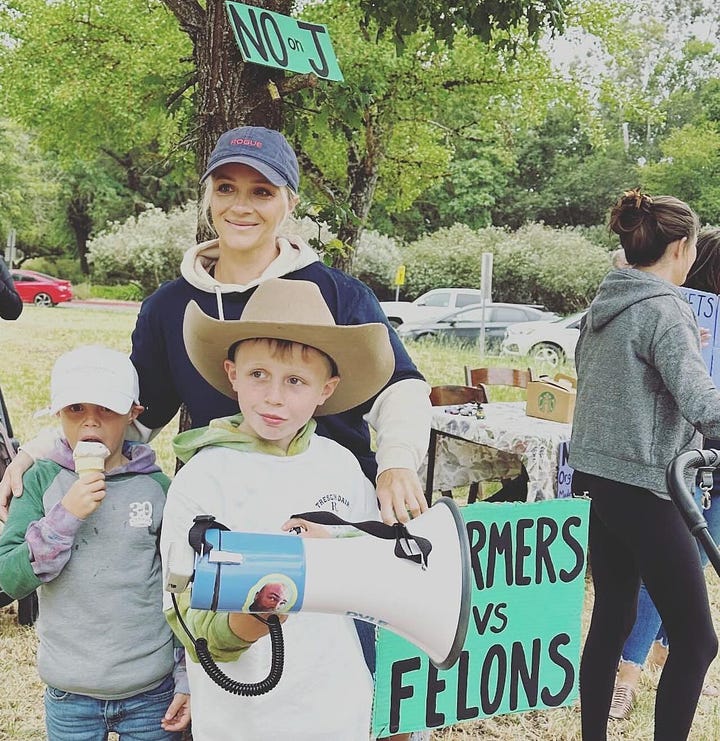
Activists deceived voters to force Measure J on the ballot
Ghirardelli says activists from the Coalition to End Factory Farming collected the signatures needed to force Measure J on the ballot by manipulate voters, displaying upsetting, deceptive photos of dead animals.
“We found out that people who signed didn’t realize what they were signing,” Ms. Ghirardelli said. “They were told this was factory farms, when this is actually a hit on Sonoma County animal agriculture.”
She believes Sonoma County residents overwhelmingly appreciate their local farms and recognizes that the farmers are doing things right. Regardless, they are now forced to fight for their way of life or face extinction in November.
“To vilify farms based on the number of animals they have is criminal; it’s not indicative of the quality of farms here. But it’s really hard to battle people who just don’t believe in it. In their eyes it will never be good enough, because their end goal is for us to be gone.”
Dayna Ghirardelli, executive director of the Sonoma County Farm Bureau
“Their goal is to end animal agriculture.”
The Tresch family has been farming in Sonoma County since 1905. They run 750 cows on 2000 certified organic acres and were the second dairy in the western U.S. to receive an organic certification. If Measure J passes, they will be shut down.
“This is not my parent’s first fight to protect their livelihood,” daughter Lindsay O’Hara, a sixth-generation dairy farmer, told UNWON. “My parents have worked tirelessly for my whole life, and most of their own, taking care of this ranch and their animals. Every year they plant countless trees, protect areas that are sensitive to erosion, and rotationally graze the herds. In 1995 my parents won The Sierra Club Environmentalist of the Year award. They care deeply for this land and their animals and the same can be said for all of our neighbors.”
O’Hara says Measure J is only a small step toward the activists’ goal of ending animal agriculture, and would set a dangerous precedent for the rest of California and the country.
“It is also suspected that this group was behind the avian flu that spread through the local chicken farms earlier this year,” she said. “The first case was reported three days after a Direct Action Everywhere trespassing incident on one of the local poultry farms.”
Who is behind Measure J? Radical animal rights extremists.
The Coalition to End Factory Farming is a front group for the infamous animal rights extremist organization Direct Action Everywhere (DXE). Based in Berkeley, DXE declares that their goal is to end all animal agriculture by 2040.
“This group stems from animal activism and liberation groups that simply do not believe in or agree with animal agriculture or the use of animals for food and other resources,” Ghirardelli said. “This is a gateway to their ultimate goal of ending animal ag.”
Sonoma County Supervisors are unanimously opposed to the measure. “Everything is wrong with Measure J,” supervisor David Rabbitt told CBS News, claiming it would result in an annual half-billion dollar loss to the local economy. “It is a disaster for Sonoma County.”
Setting a dangerous precedent; Sonoma County is just the beginning.
The activists behind the bill are clear that if they succeed in getting Measure J passed in Sonoma County, they will replicate this effort across the country.
“We think that starting at the local level in a place where there is a high amount of public opinion against factory farming is a good way to start that ball rolling,” activist Lewis Bernier, who calls himself a factory farm investigator, told CBS News.
Bernier believes that if his group is successful in Sonoma, other communities will follow.
Family-owned, organic farms on the chopping block.
Measure J supporters claim just two dozen farms in Sonoma County will be forced to close. But the actual language of their bill is vague—farmers say intentionally so.
My dad, Dr. Rich Brazil, is a large animal veterinarian of over 35 years in nearby Mendocino County. I asked him to explain what a “factory farm” is, and the answer surprised me.
“‘Factory farm’ has no accepted definition, but it’s often used to malign animal agriculture.”
The term is sometimes associated with two regulatory labels: animal feeding operation (AFO) and concentrated animal feeding operation (CAFO). The problem is, both of these labels have very specific definitions, neither of which have to do with animal welfare.
“An AFO is just a farm, a regulatory term for a farm defined by the U.S. Department of Agriculture. CAFO is actually an environmental phrase designated by the Environmental Protection Agency to identify an AFO, a farm, that could be a source of surface water contamination. Neither term has anything to do with animal welfare, animal density, whether animals are in cages or buildings, anything like that.”
The activists behind Measure J have dishonestly conflated CAFOs with factory farming for the purpose of garnering support for the bill. They use “factory farming” in their language and marketing, but the bill itself would ban CAFOs, which is an environmental label not designed to imply anything negative about an operation whatsoever. These activists are playing on the common negative response people have to “factory farming,” an undefined term, to imply animal abuse.
“The term ‘factory farming’ is super subjective and misleading, it’s used as a scare tactic,” Ghirardelli told me. “The activists have equated CAFO with factory farming. The two are not the same and should not be used synonymously.”
“CAFO is not inherently bad. It has everything to do with environment.”
“I think that the term ‘factory farm’ is being used for the emotional and visual effect it has on consumers,” O’Hara said. “I also believe that it is not an accurate term to describe the farms that this bill specifically targets. In general, I believe the term is used when there is a specific agenda or motive behind it.”
A similar bill is on the ballot in Berkeley.
In nearby Berkeley, voters will have a chance to decide on similar legislation. The city has very little agriculture and no farms that qualify for closure under the bill. The only business it would close down is Golden Gate Fields, a horse racing track where horses are stabled and fed. This facility is already slated for closure well before the vote in November.


